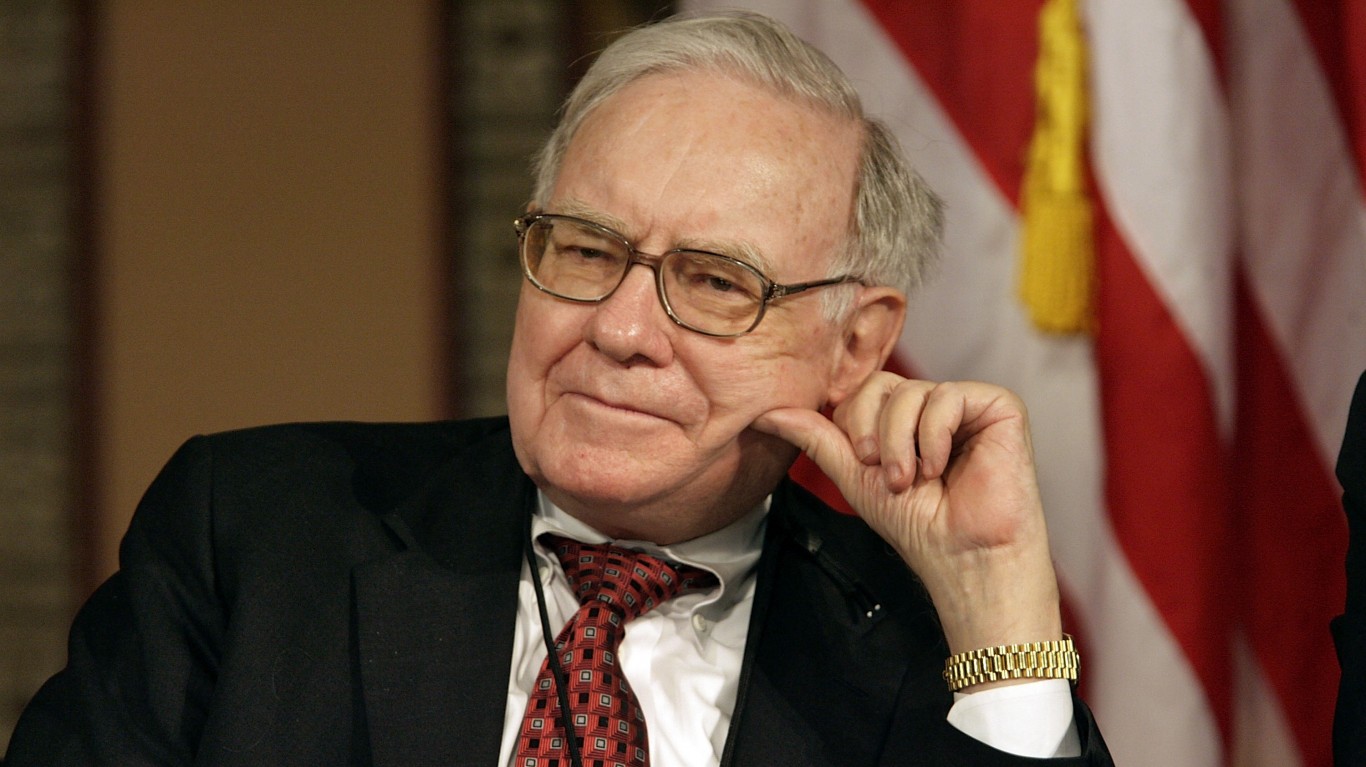Personal Finance
Warren Buffett says this - not money - is "the ultimate test of how you have lived your life"

Published:

Warren Buffett has been called one of the greatest investors of our time. Since becoming CEO of Berkshire Hathaway (NYSE:BRK-A)(NYSE:BRK-B) in 1964, the Oracle of Omaha has returned an astounding 4,384,748% compared to a 31,233% return for the S&P 500.
That’s a near 20% compound annual growth rate, or twice that of the broad market index. Had you invested $1,000 in Berkshire Hathaway at the time and then just held on, your portfolio would be worth over $43.8 million today.
Buffett’s has expounded on his winning formula many times in his annual letter to shareholders. He buys solid companies, often with a consumer-facing business that people return to again and again. They also possess clear-cut competitive advantages and strong management teams. Most importantly, he advises against thinking about the next quarter or several quarters, but rather to have an investment timeline than spans years, decades even.
It’s part of the reason thousands of investors flock to Omaha every year to hear Buffett’s investing insight at the Berkshire Hathaway annual shareholder meeting. They want to see what pearls of wisdom he might drop that can help them amass generational wealth in the stock market.
But they might be seeking the wrong advice from Buffett. In a talk with students at Georgia Tech in 2001, the Oracle of Omaha was asked about his greatest success and failure. His response surprised many. Money, he said, was not the yardstick he uses to measure success.
I hadn’t read this quote from Buffett before I ran across it on the r/personalfinance subreddit. Having broken up with his girlfriend of seven years, Redditor throwaway48484849494 was despondent over his subsequent loneliness, but found some solace in Buffett’s words at Georgia Tech.
“Basically, when you get to my age, you’ll really measure your success in life by how many of the people you want to have love you actually do love you.
I know many people who have a lot of money, and they get testimonial dinners and they get hospital wings named after them. But the truth is that nobody in the world loves them.
That’s the ultimate test of how you have lived your life. The trouble with love is that you can’t buy it. You can buy sex. You can buy testimonial dinners. But the only way to get love is to be lovable. It’s very irritating if you have a lot of money. You’d like to think you could write a check: I’ll buy a million dollars’ worth of love. But it doesn’t work that way. The more you give love away, the more you get.”
As Buffett also noted, we all sleep in the same kind of bed, we dress the same, and we eat at the same restaurants. We’re not outdoing each other in the basic areas of life whether you have money or you don’t.
While some people make more money than others, and they will have more material possessions in life than those who don’t have money, as the old sayings go, you can’t take it with you and money can’t buy you love.
What differentiates us is whether we have the capacity to love and be lovable in return. Going through life wondering whether people like you simply because you are wealthy must be tiresome. It’s a problem I’d like to have one day, but being surrounded by people who care for you even if you don’t have money has to be far more satisfying.
Certainly, it is always easier to say money doesn’t matter when you have a lot of it, but it’s not necessarily a wrong sentiment either.
Retirement planning doesn’t have to feel overwhelming. The key is finding expert guidance—and SmartAsset’s simple quiz makes it easier than ever for you to connect with a vetted financial advisor.
Here’s how it works:
Why wait? Start building the retirement you’ve always dreamed of. Click here to get started today!
Thank you for reading! Have some feedback for us?
Contact the 24/7 Wall St. editorial team.